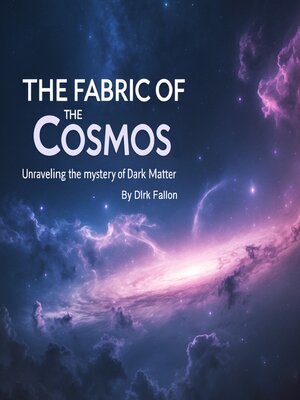
Sign up to save your library
With an OverDrive account, you can save your favorite libraries for at-a-glance information about availability. Find out more about OverDrive accounts.
Find this title in Libby, the library reading app by OverDrive.



Search for a digital library with this title
Title found at these libraries:
| Library Name | Distance |
|---|---|
| Loading... |
The story of dark matter begins not in the distant reaches of the universe, but in the questions that humans have asked for centuries. What is the universe made of? Why do galaxies behave the way they do? As our tools for observing the cosmos improved, so did our understanding—but with every answer came more mystery. In the early 20th century, astronomers began to notice strange things. Galaxies were spinning in ways that defied the laws of physics, at least as we understood them. The stars on the outer edges of galaxies were moving far too fast to be held together by the gravity from visible matter alone. There had to be something else out there, something invisible, something we couldn't detect with telescopes. This was one of the first big hints that something massive and unseen—what we now call dark matter—was shaping the universe.
Modern cosmology was born when scientists started to view the universe not just as a collection of stars and planets, but as a dynamic, evolving structure governed by deep physical laws. Einstein's theory of general relativity reshaped our understanding of space, time, and gravity. Suddenly, the universe was a place where space could bend, expand, and even accelerate. These ideas led to the Big Bang theory and the realization that the cosmos had a beginning and has been changing ever since. But as astronomers began mapping out galaxies and measuring their movements, inconsistencies popped up. The math didn't add up unless we assumed that most of the mass in the universe was missing from our view. That mass didn't emit light, didn't reflect it, and didn't absorb it. It was dark, but it was there.







